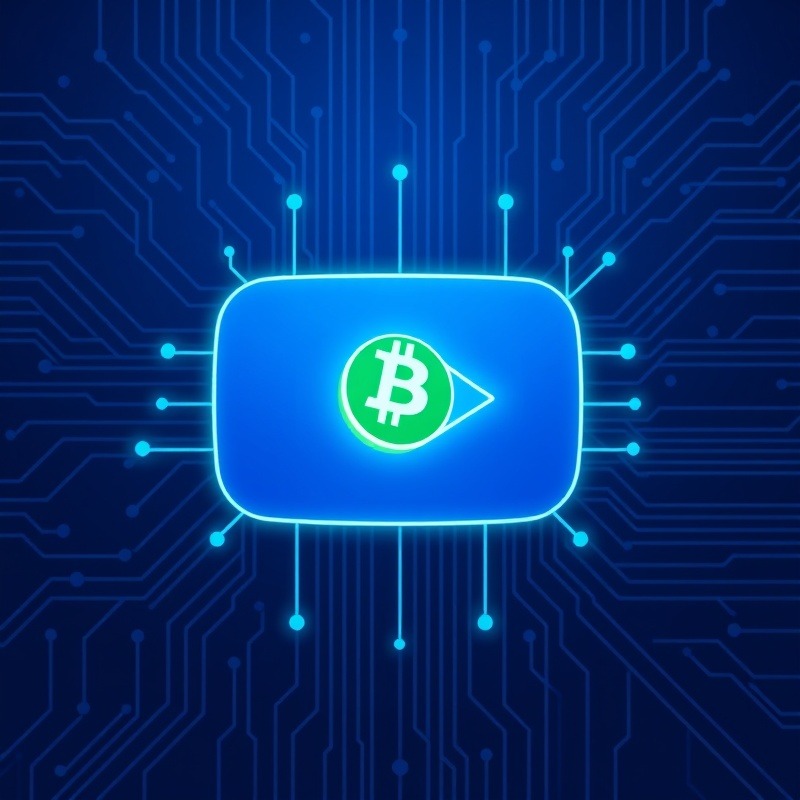
The Future of Finance: Tokenization and BlackRock’s Role
The evolution of finance is on the brink of a significant transformation as the world witnesses shifts in capital management and investment strategies, heralded by tech giants like BlackRock. With its stature as the world’s largest asset manager, BlackRock's initiatives in asset tokenization and the burgeoning field of cryptocurrencies present profound implications for retail investors and financial institutions alike.
In 'BlackRock’s Endgame? Tokenization, Bitcoin, and Global Control,' the discussion dives into the implications of asset tokenization and global financial systems, prompting us to analyze its potential impact.
Understanding Asset Tokenization and Its Potential
Asset tokenization refers to the process of creating digital representations of real-world assets on a blockchain. These digital tokens can represent anything from stocks and bonds to real estate and infrastructure projects, allowing these assets to be bought, sold, and traded in a fraction of the time traditional methods require. Larry Fink, CEO of BlackRock, has articulated a vision where the tokenization of assets democratizes access to investment opportunities, making it easier for everyday investors to engage with markets previously dominated by institutional players.
The Historical Context of Investment Accessibility
This is not a new theme in the history of financial markets. Public exchanges that first opened in Amsterdam in 1602 were milestones aimed at widening access to investment beyond just the wealthy elite. Despite the progress made since then, significant wealth inequality persists, evidenced by trends echoing Fink's concerns over the disparity in investment access. Now, with advances in blockchain technology, we stand on the threshold of potentially resolving some of these historical inequities, yet challenges remain.
Challenges Posed by Inflation and Retirement Savings
As inflation rates climb and economic pressures mount, concerns about retirement savings loom large. Fink notes that over half of retirees fear outliving their savings, with many Americans living paycheck to paycheck. This highlights a critical dilemma: how do we empower individuals to invest in a volatile market characterized by rising costs and uncertainty? BlackRock's solutions, while innovative, require scrutiny regarding their efficacy in genuinely uplifting the financial position of average investors.
Institutional Influence on the Financial Landscape
BlackRock's colossal presence in financial markets, particularly through its vast interconnections with banks and governments, raises pertinent questions about the influence of large institutions over the average investor. As these organizations harness enormous capital reserves, the risk grows that the democratization of finance may merely enrich existing asset holders rather than empower the general populace.
Bitcoin: A Digital Asset or a Hazardous Bet?
Among the assets Fink discusses is Bitcoin, which he posits might one day rival or even surpass the US dollar as the global reserve currency should the US fail to manage its debt effectively. However, skepticism exists. Many investors still regard Bitcoin as a speculative asset rather than a secure store of value compared to traditional increments like gold. The volatility seen in cryptocurrency markets could deter some from viewing Bitcoin and similar assets as safe long-term investments.
Moving Toward Tokenized Economies
Tokenization holds the promise of instant transferability and fractional ownership, providing a liquidity that is often absent in traditional investments. However, with the potential for rapid shifts in asset values and the demand for regulatory compliance, tokenized assets must evolve with rigorous security and identification frameworks. In essence, creating a digital identity verification system will be crucial for safeguarding these investments and ensuring trust among retail investors.
The Pending Role of Cryptocurrency in Retirement Planning
Amidst fears surrounding underfunded pensions and Social Security's imminent expiration, innovative strategies for retirement planning are essential. BlackRock seems poised to intertwine traditional retirement saving methods with its approaches to tokenization, proposing a blend of private investments while urging individuals to start early. The ambition here is clear—integrating new technologies into retirement portfolios to prepare for a changing financial landscape.
The Broader Economic Implications
The confluence of government fiscal challenges and rising inflation necessitates a new approach to economic management. As noted in Fink's letters, governments and large corporations will increasingly turn to capital markets for financing. This trend signals a shift where retail investors may inadvertently become crucial players in maintaining economic stability, despite being the least informed about the underlying risks.
Concluding Thoughts: Engaging with the Future of Finance
The dialogue surrounding BlackRock’s strategies, as detailed in their latest communications, is crucial for anyone looking to navigate the evolving landscape of finance. By merging traditional investments with emerging technologies, retail investors could indeed find themselves with opportunities to build wealth through infrastructure investments. However, caution is warranted. As we stand on the precipice of this financial transformation, it is vital to remain informed and proactive—educate yourself and engage with credible resources that demystify these complexities.
If these developments intrigue you, be sure to subscribe to platforms such as Coin Bureau for expert content that provides deep research, market updates, trading strategies, and educational webinars to navigate your investment journey.
 Add Row
Add Row  Add
Add 




Write A Comment